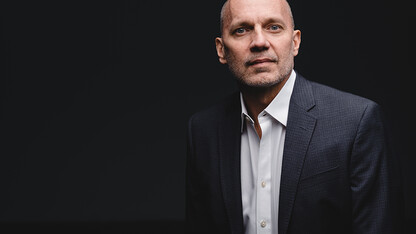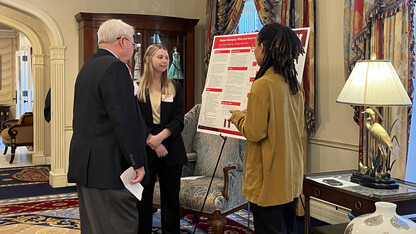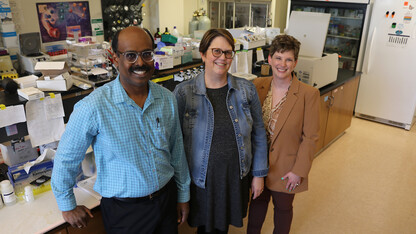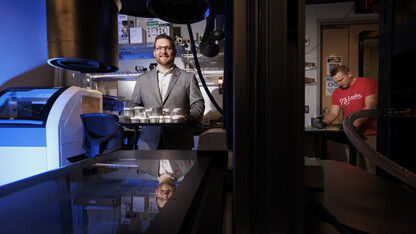· 2 min read
Gay, Molfese lend expertise to House subcommittee
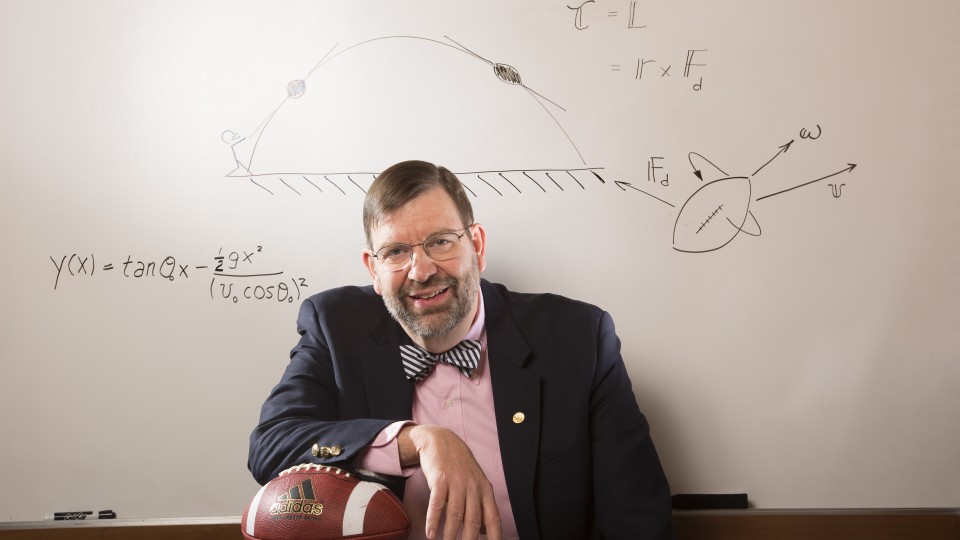
Concussions and other brain injuries in sports was the topic of discussion on Capitol Hill on March 13, and lawmakers called on a pair of UNL professors to help educate them on the topic.
Dennis Molfese, professor of psychology and director of the Center for Brain, Biology and Behavior and physics professor Tim Gay joined other expert witnesses at the U.S. House of Representatives Energy and Commerce subcommittee hearing.
The hearing focused on what the sports industry is doing to protect its players, from young children to professional athletes.
“Every day, parents make choices about whether or not to let their daughter play soccer or what kind of mouthpiece to buy their son for his first day of Pop Warner football,” said Rep. Lee Terry of Nebraska, the subcommittee’s chairman. “Unfortunately, it seems like every day, we hear about how participation in certain sports can be dangerous. We want to better understand the innovations being made by sports leagues, equipment manufacturers and the medical community to make all sports safer.”
Efforts to prevent and mitigate the occurrence of concussions in sports, including game rule changes, coaching and player education, guidelines and the development of brain injury research and equipment research and development were discussed in the subcommittee hearing.
Improving helmet safety is one factor that could prevent sports concussions, Gay said.
“It is apparent that adding more energy-absorbing foam to a helmet will lower the maximum forces delivered to a player’s skull, and thus reduce the risk of a concussion,” he said.
Whenever padding is retrofitted to the outside of a helmet, its diameter increases, and the torque that can be applied by a glancing blow is increased, he said. While this lowers the risk of concussion, it dramatically increases the risk of neck injuries, he said.
Gay urged increased use of equipment analytic systems, like the Star rating system and the Head Impact Telemetry System (HITS), which help improve helmet and injury assessment.
While Gay focused on ways to prevent sports injuries, Molfese explained the challenges doctors face in correctly diagnosing concussions, including a patient’s ability to accurately report symptoms.
“In the absence of objective measures, this long-used approach is fatally flawed,” he said.
Representatives from the NFL and NHL and other athletes also testified.
Click here for a C-SPAN video of the hearing. Molfese appears at 2:03:00; Gay appears at 2:14:00.



